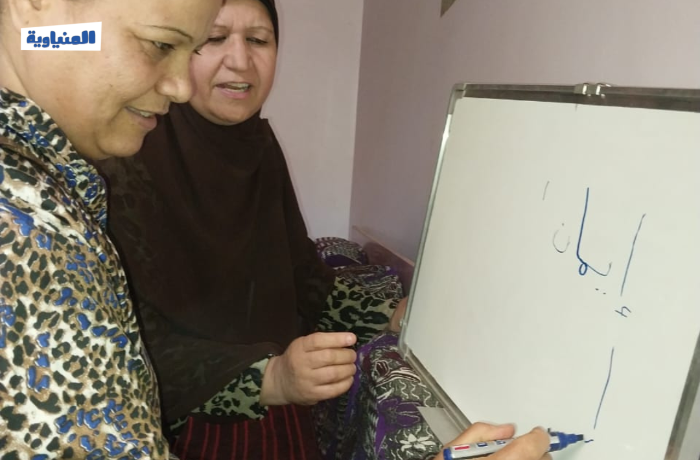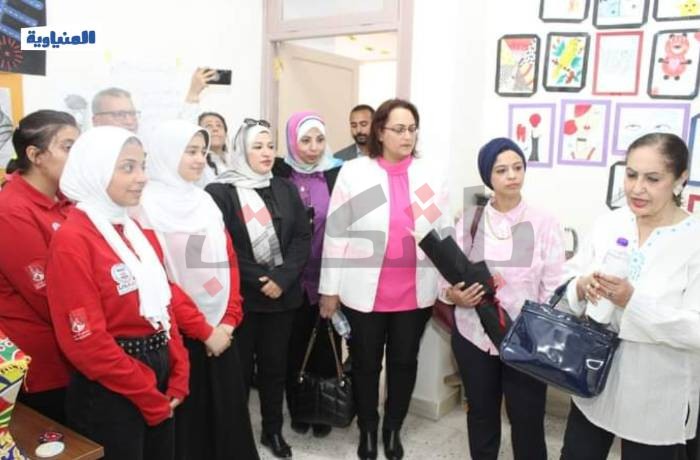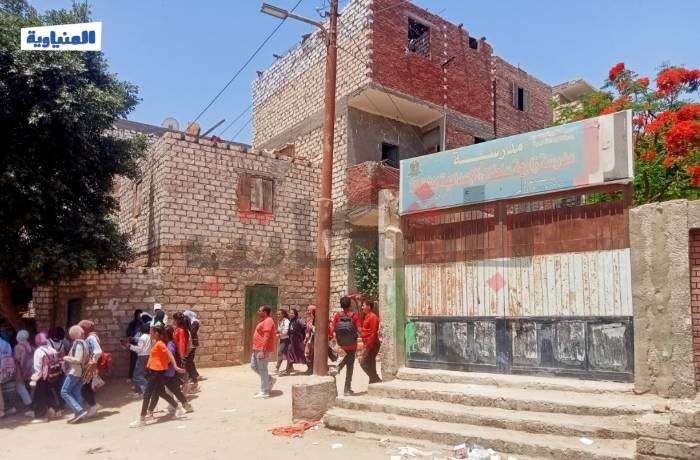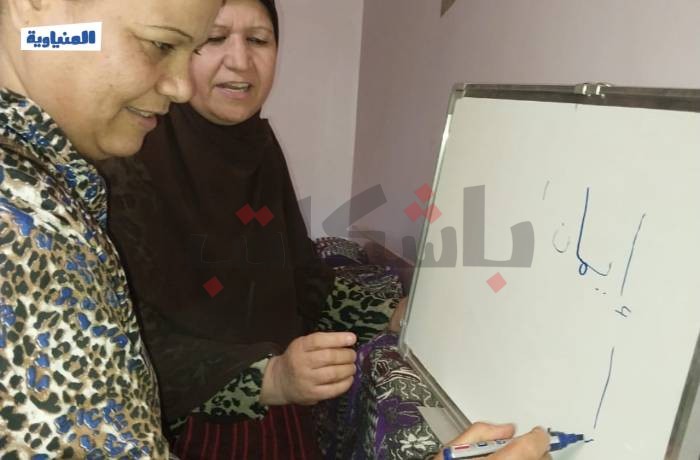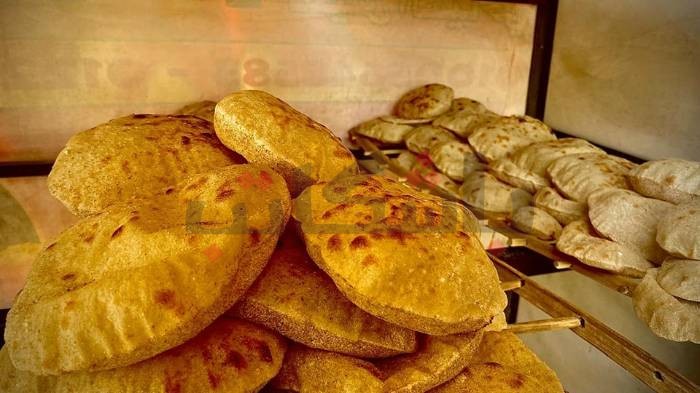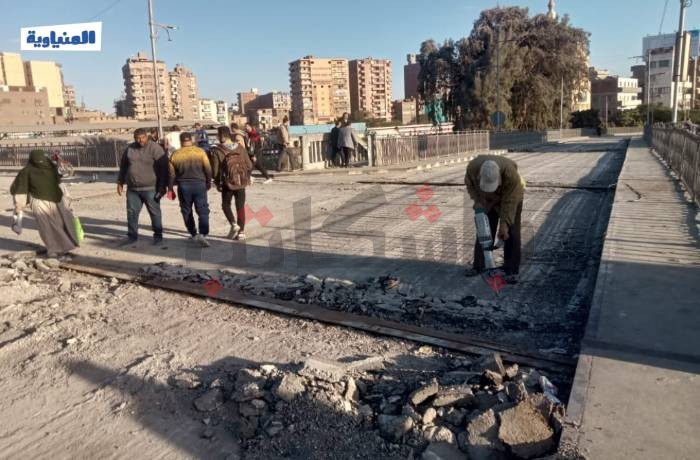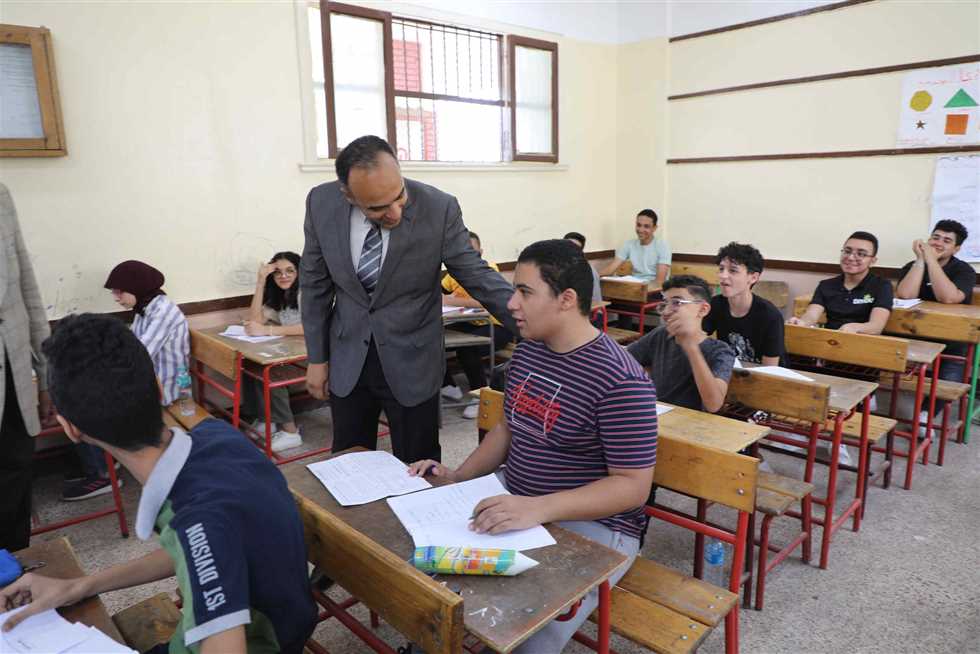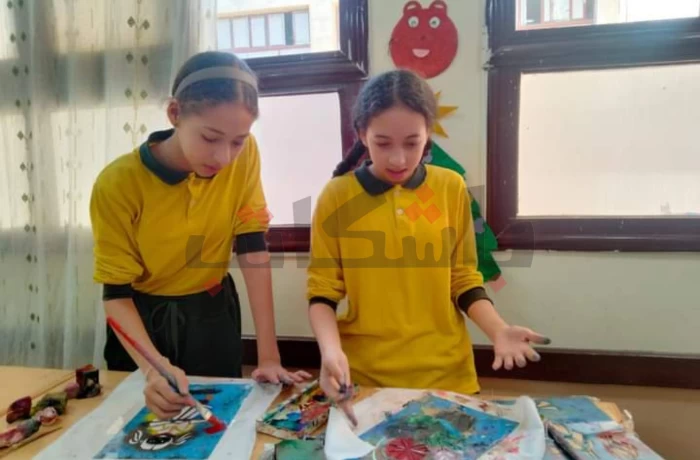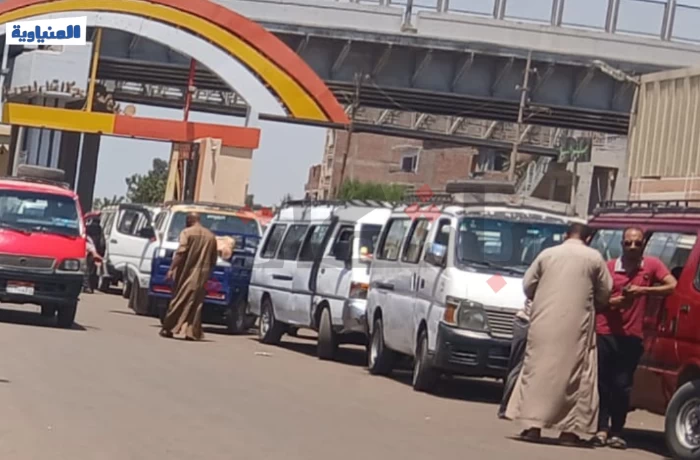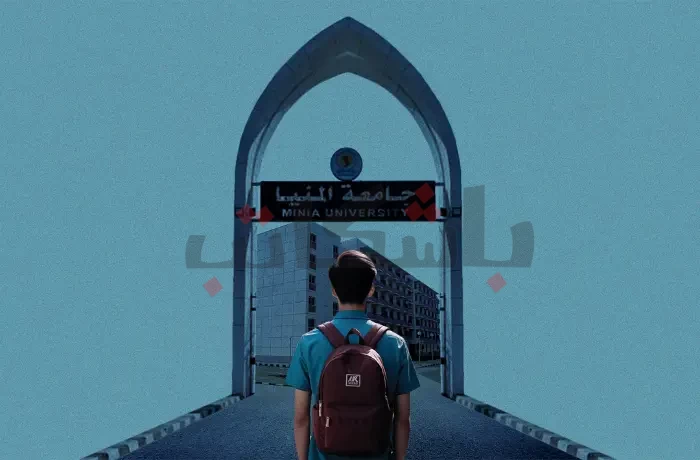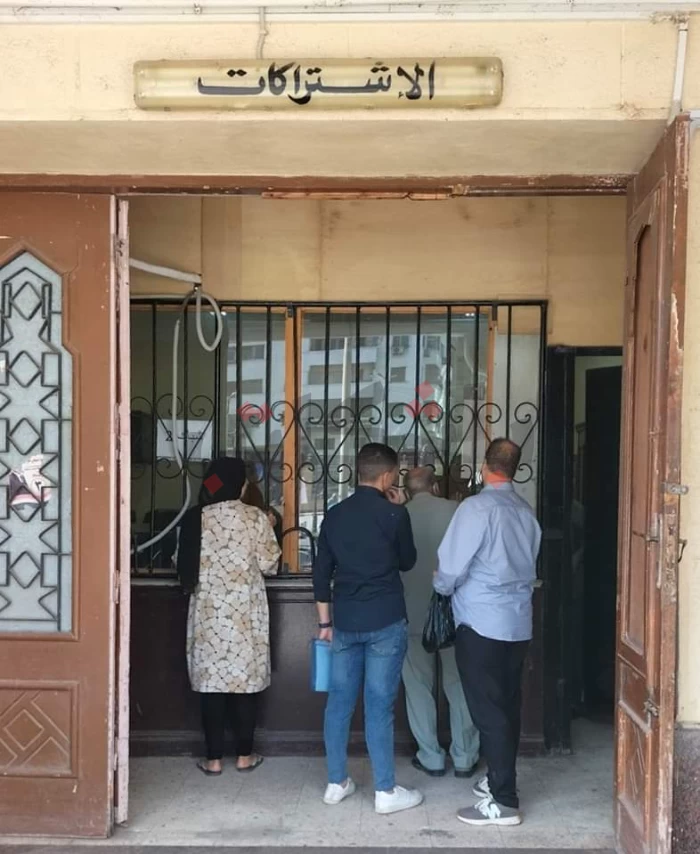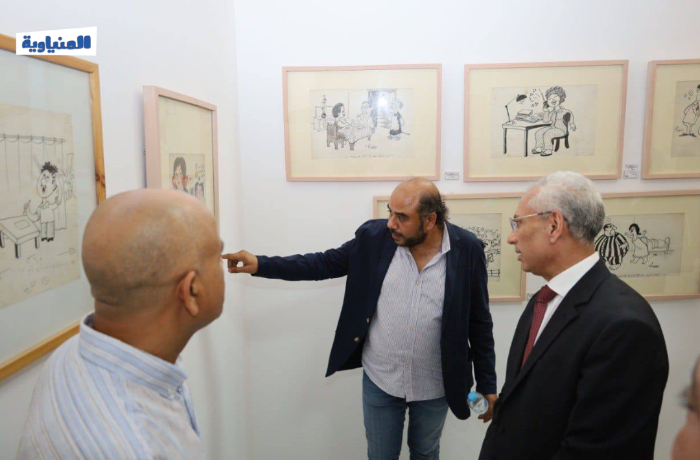Minya governorate remains the highest in illiteracy rates, for despite the cooperation of literacy classes with community organisations in the governorate’s villages, it is still the most illiterate governorate.
According to a report published by the Central Agency for Public Mobilisation and Statistics last September, concerning most illiterate governorates, Minya was the highest with one million and 321,108 thousand illiterate people, out of a population of 46 million 70,45 thousand; men ranked the highest with 39.6% and women with 33.2%.
Shady Rizq, Director of Adult Education and Literacy Authority in Minya, attributes this high percentage, despite efforts made, to low budgets assigned to the authority, also teachers do not get paid for their work there, but they rather volunteer.
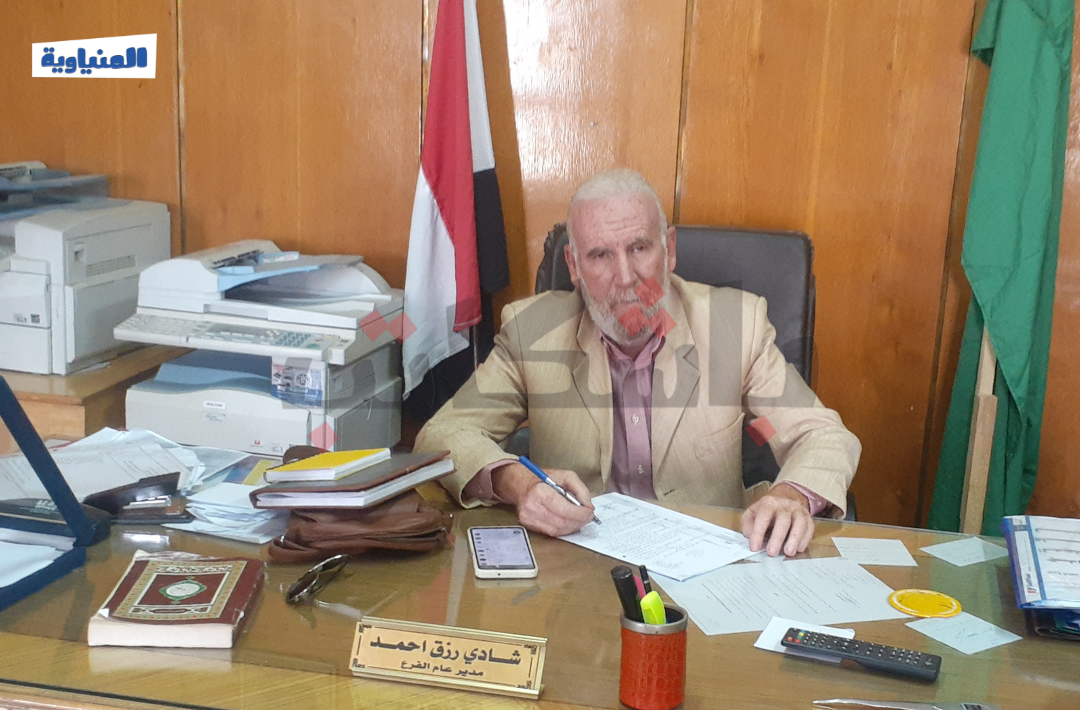
“Students would go to the headquarters of the Adult Education and Literacy Authority, carrying a “Student” card, they would study one of the nine curriculums assigned in Minya, and those who pass receive a certificate that equals the primary grade”, Rizq clarifies.
Then he adds, “the economic crisis and tight budget are also some of the reasons, added to them customs and traditions, but currently we’re trying to work on changing the stereotypes and launch initiatives like “Knocking on Doors” initiative presented by the authority; we go to the illiterate and try to convince them to go to classes, and universities are what help us in our endeavours the most”.
According the Central Agency for Public Mobilisation and Statistics in 1st July 2021, illiteracy was increasing in Minya in the last years; illiteracy among women was 45.8%, whereas men was 37.7%, out of a population of 37 million, 867,12 thousand. While, at the same time next year, illiteracy among women was 36.0%, whereas men 43.5%, out of a population on 38 million, 659,87 thousand.
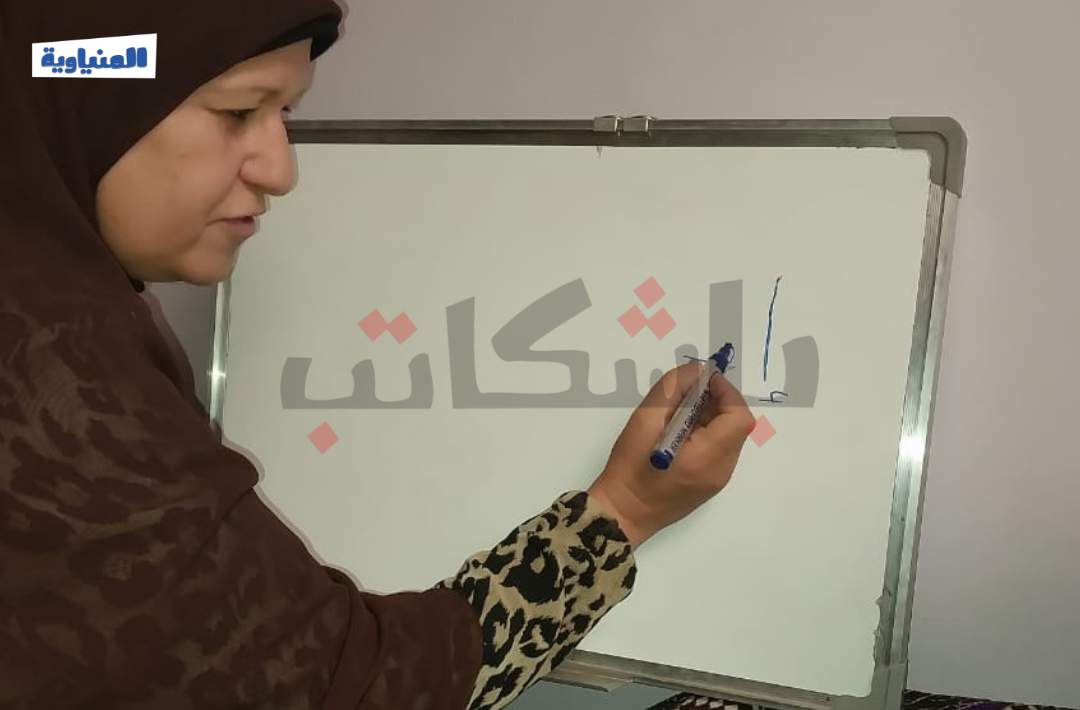
Commenting of efforts made to eliminate illiteracy, Shady Rizq, director of the authority says, “we work on eliminating illiteracy by targeting hamlets and villages, we established classes in many areas, and we have cooperation protocols between the Ministry of Youth and Sport, the Ministry of Education, Al-Azhar, the universities, and civil society institutions”.
“Lately, we work on launching initiatives on supporting loyalty, belonging, and citizenship, and rejecting violence and domestic discords while asking for the help of the family house and Al-Azhar. Currently, there are no classes following the authority, the teachers individually start a class, they don’t receive salaries, but a reward for their efforts”, added Rizq.
Amal Taha Abdulghani, Literacy Coordinator in the Youth and Sports Directorate in Minya, explains the protocol between the authority and directorate, “the contractor goes to the authority headquarters in the nine sectors inside the governorate, asking to start a class affiliated with the Youth and Sports Directorate”.
In addition to this, according to Amal, the directorate has launched several courses that achieved tangible results, “in July 2022, we started a course in which 208 facilitators participated in 208 classes, and 752 students have graduated successfully. As for the October 2022 course, 469 facilitators have participated and 353 have graduated”.
“In January 2022 course, 18 facilitators participated and 86 students have graduated, and in April 2023, 144 facilitators participated and 483 students graduated, so that Youth and Sports Directorate has helped around 1655 receive education and pass successfully from July 2022 to April 2023. Teachers receive a reward of 250 pounds for each student’s success in these courses”, added Amal.
We talked to some of the teachers, one of them is Samar Mohamed, she opened classes affiliated with the Literacy Authority and Youth and Sports Directorate in Bani Khaled village, Malwi town, Minya.
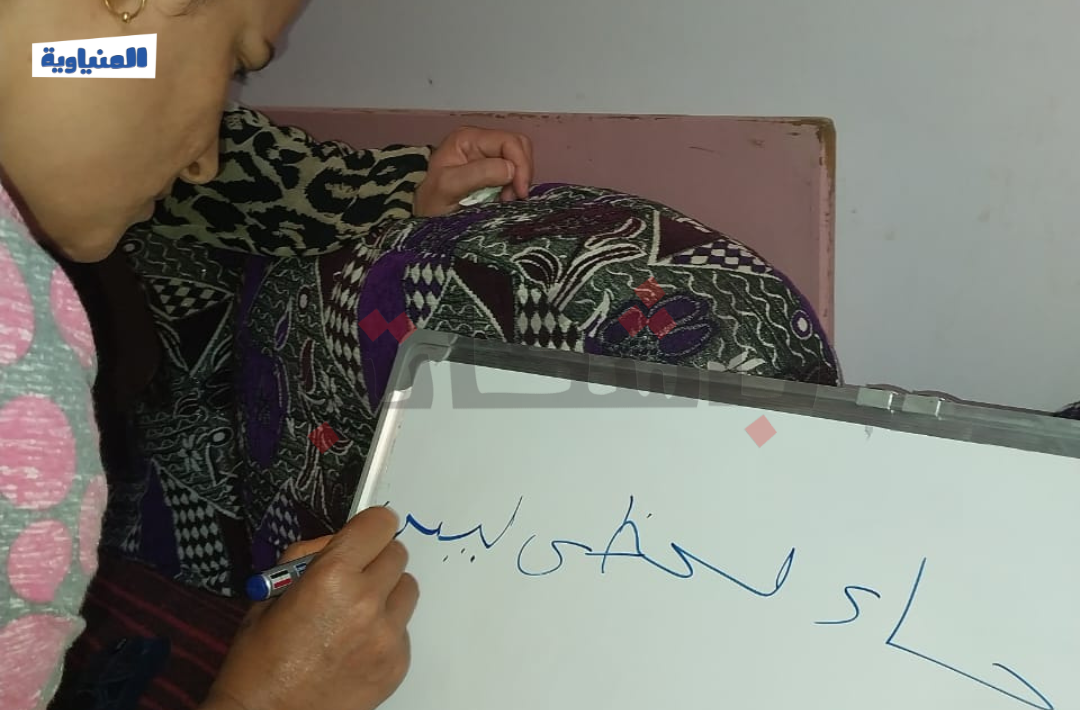
“Some women are shy to attend and others do not know how to hold a pen, some of the husbands refuse to let their wives go to the classes, that’s why I had to convince them myself. In the beginning, I opened a class where 5 girls who dropped out of school; they actually attended the classes and exams, and I receive a 250-pound reward for each successful girl”, said Samar.
Among those successful girls was Asmaa Hasan, a pseudonym, “my father refused to let me go to school for several reasons, mainly was because women do not go to school and I got married at the age of 16. There was a teacher in our village that opened a class and my husband refused to let me join it, but I found another teacher and after 6 months I was helping my children with their lessons”.
Hend Ali, a pseudonym, was an illiterate woman from Minya, she wasn’t so much as lucky, “I didn’t go to school and got married when I was 16, but I’ve always wanted to receive education and was keen on letting my children receive one”.
“My husband refused to let my daughter goes to school and didn’t let me attend literacy classes, even after some teacher from the classes asked him themselves, but I am annoyed with my ignorance and not being able to read or write, and I hope to join a literacy class”, added Hend.
Another literacy project was launched in Minya: Digital Savings and Lending Project, which was conducted by the National Council for Women within the Egyptian Family Development Projects. It is a national project implemented in more than one governorate, among them Minya, as part of Haya Karima (dignified life) national initiative.
Ashgan Khalaf Youssef, Project Supervisor in Minya, says “this project invests in women, being the protective shield and backbone of the Egyptian family. Women are deprived from education for being only women, and families prefer to educate their boys as schools are far from homes or because their girls marry at a young age”.
“The National Council for Women helps women not only in learning reading and writing, but we work on eliminating digital illiteracy, meaning that we started teaching women how to use ATM machines and electronic transactions, as they’re part of Digital Savings and Lending Project”, said Ashgan.
Then she added, “the council also works on training women on making projects using simple means inside their homes, and at the same time that project would help the environment, but we need the support of the Adult Education and Literacy Authority through offering educating tools”.
